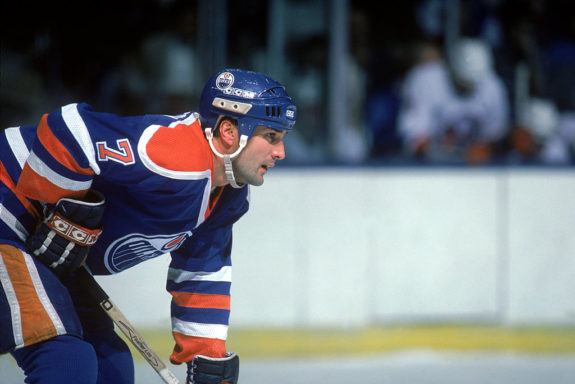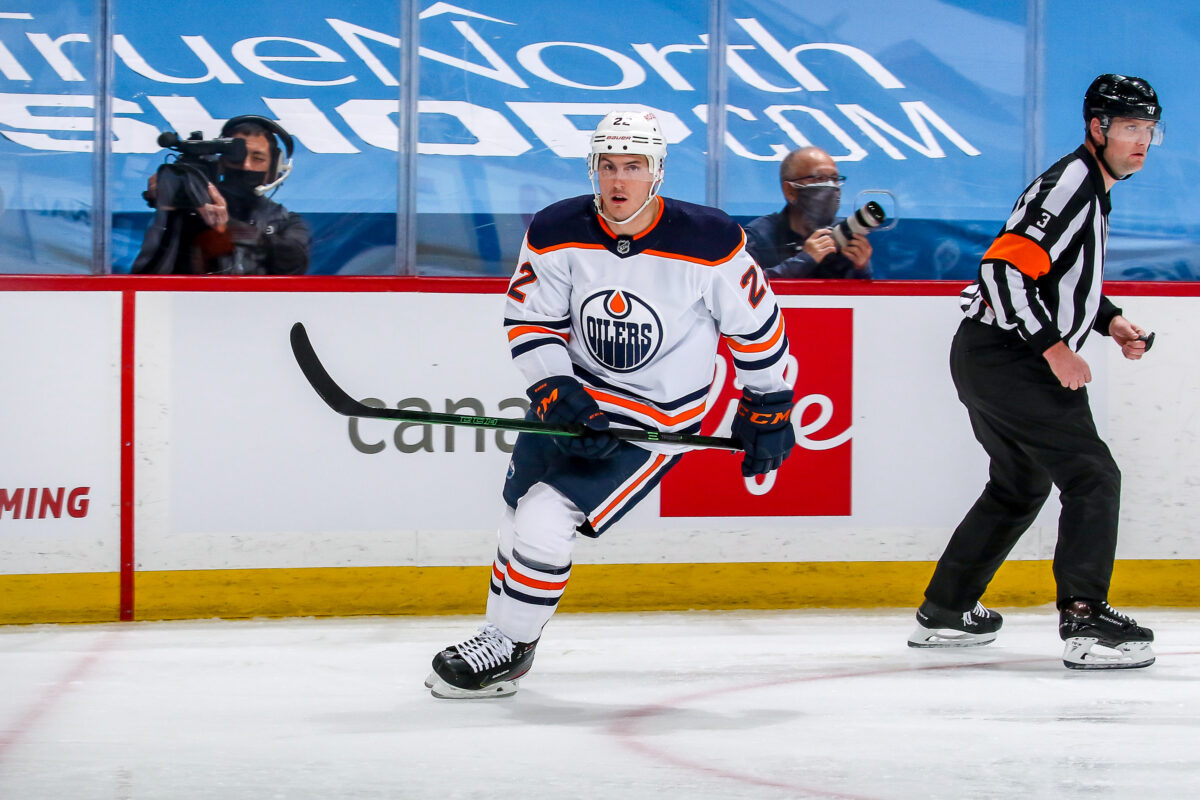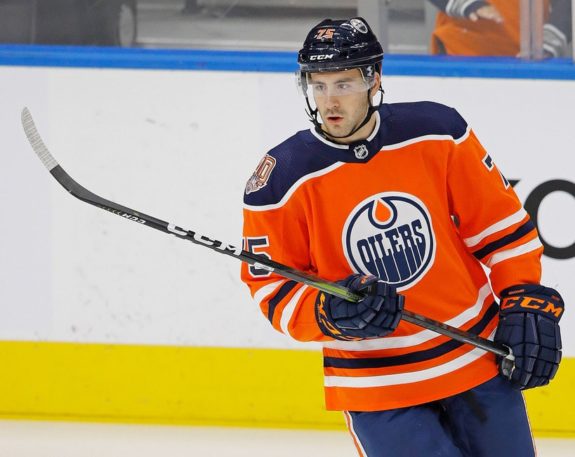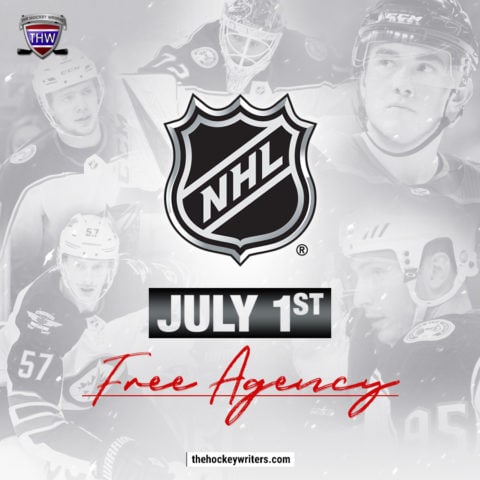When Tyson Barrie took a discount to sign with the Edmonton Oilers this year, all parties wanted the same thing: a productive season. For the player, success meant that his time in Toronto wasn’t indicative of a sudden decline but instead was the result of a poor fit in either the scheme or the plans a specific coach had for him. For the team, adding a consistent point producer at a bargain price just made sense. Oiler fans hoped to see him contribute from the back end, making the modest bet from general manager Ken Holland pay off from the point of view of dollars spent per point. And Barrie, on a one-year deal, wanted to show all 32 National Hockey League teams that he is still worth committing to on a long-term, big-money deal.

There’s no question that he is an elite offensive defenseman. The players at his position with better numbers this season can be counted on one hand, and he could even be considered a longshot candidate for the Norris Trophy, though his plus/minus stat likely derails that conversation. He is in for the big payday he was hoping for, and wherever he ultimately lands, he’ll no doubt continue to put points on the board in a top-four defensive role. The decision Holland needs to make is if it’s worth betting Connor McDavid’s championship window on Barrie.
Term Will Be the Biggest Factor
The Oilers have money to spend. For the first time in a while, they won’t be tight up against the salary cap the way championship teams like Tampa Bay are, and they can overpay for a player or two to truly ice a contending roster. Welcoming Barrie back into the fold for 2021-22 is a no-brainer, even at a marked-up rate, given his chemistry and production with the Oilers. But the former third-round pick of the Colorado Avalanche will turn 30 this summer. He will want to sign a long deal so that he can maximize his career earnings before the inevitable decline brought on by age begins.

One doesn’t need to look far to find cautionary tales about signing players entering their thirties to big, maximum-length deals. In Edmonton, Milan Lucic’s contract was soon a regrettable one, as was that of James Neal’s, the player he was traded for. From the point of view of defensemen, the recently retired Brent Seabrook got a sizable deal from the Chicago Blackhawks, mostly based on past production, that the team probably wished they bargained a little harder on. Luckily, perhaps, for Chicago, Seabrook’s body made the retirement decision for him in such a way that he doesn’t negatively affect their salary cap, but there’s no way to be certain that such a fate would occur should Barrie’s production drop off a cliff.
Prospect Pot Is Boiling Over
The list of Oilers defensive prospects is a long one these days. Caleb Jones and Ethan Bear are pushing their way up the depth chart. Names like Evan Bouchard and Philip Broberg sit at the top of the minor league list, but there are a number of others. And though it’s unlikely that every single one of them becomes an NHL player, any of them, maybe even any two, will be cheaper than the cost of Barrie’s new contract. Bouchard has shown an ability to score in the pros and seems ready to step into any gap Barrie’s departure might leave.

Holland needs to make some decisions on his defensemen pretty soon anyways. It seems very likely that the Seattle Kraken will scoop whichever young defender the Oilers leave unprotected unless the GM pays his Kraken counterpart, Ron Francis, to pick someone else. A bet will need to be made on which of these young prospects are most likely to become consistent NHLers, and trying to kick that ball down the road by signing a UFA like Barrie could mean losing more than one of the others.
Someone Always Overpays
Rightly, given his comeback season in Edmonton, Barrie’s agent will be courting all suitors. It simply doesn’t make sense to limit the options at this point in his career. That doesn’t mean Barrie won’t sign in Edmonton again for less than he might make elsewhere, but it does mean there’s a chance that a rival team, perhaps overvaluing his potential contributions, makes an offer that Edmonton shouldn’t match.

The classic mistake NHL GMs make is paying a player for what they’ve already done rather than what they’re going to do at their new rate of pay. While the league is generally learning its lesson about overpaying free agents, it only takes one or two teams to push the market sky-high. Holland has to make the right moves this offseason, or he risks another rebuild around McDavid, wasting the best years of the superstar’s career and hurting his own legacy in the process. He will naturally be in the conversation as Barrie looks for a new landing spot, but as any gambler knows, sometimes it’s best to lay your hand down if the betting gets too big.
Related: Tyson Barrie: Key to the Oilers’ Success in the Long Term?
This season isn’t over yet. The Oilers are all but guaranteed a playoff spot, and their success, or lack thereof, in the playoffs could be affected by the play of Barrie. If the team makes a deep run or even finds a way to win it all, then one has to look for ways to preserve a roster that has that kind of success. It’s the reason Brent Seabrook got overpaid, and it isn’t necessarily a flawed argument when you are looking to win every year. The more likely truth, though, is that Edmonton’s defensive depth will recover from Barrie’s departure, and the money not used there could be better spent filling their other needs if they want to become the next Tampa Bay Lightning.